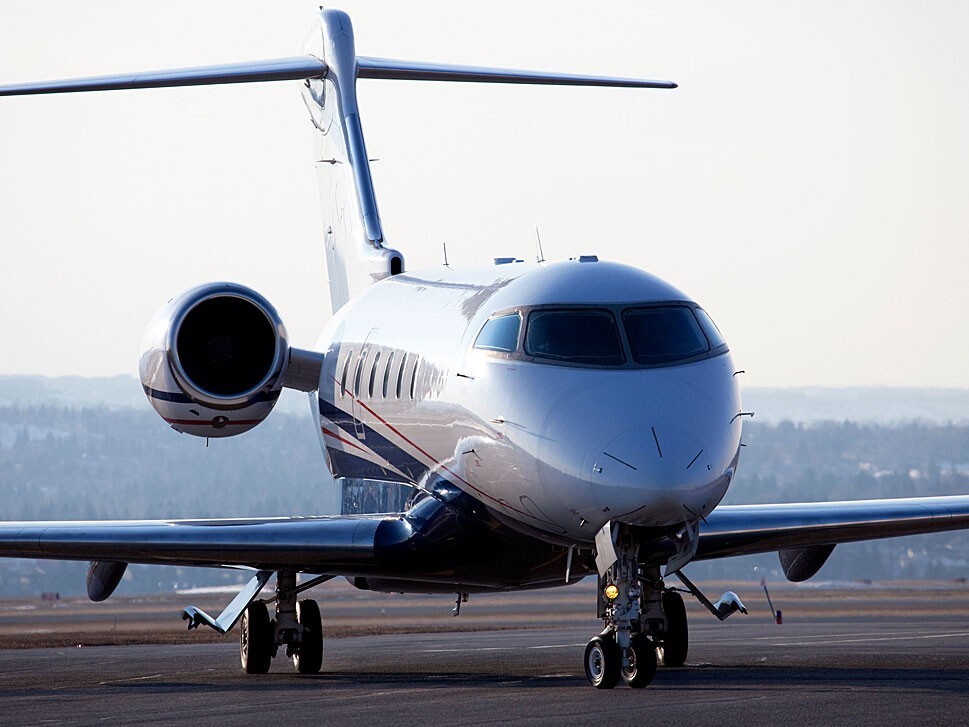- 15 Nov 2022
- Felipe Reisch
- AvBuyer Africa Articles
Operating Airplanes in Africa? Which Registry to Choose
Registration is a necessary part of aircraft ownership, impacting operations, insurance premiums, and resale value. With multiple registries available, and some being more advantageous than others, what should owners know? Jane Stanbury explores…
Back to Articles
It is the responsibility of an aircraft owner to register an airframe so it can be tracked for maintenance fulfilment, movements, and regulatory compliance. Each aircraft must carry its own registration issued from just one jurisdiction.
So, what should owners regularly flying within Africa consider when it comes to choosing the best registry for them, and what are the alternative solutions to national registries?
According to WingX Advance, the data research and consulting company for the Business Aviation industry, South African (ZS) registered aircraft hold the top spot for movements within Africa currently. 5N (Nigeria), A2 (Botswana), 5U (Niger), CN (Morocco), and 5H (Tanzania) also appear in the top ten on the continent.
Meanwhile, aircraft carrying N (USA), M (Isle of Mann), F (France), T7 (San Marino), and P4 (Aruba) registrations appear in the top twenty. The multinational melting pot reflects both the diversity of Business Aviation usage and ownership and demonstrates that no single registry meets all the needs.
Selecting a suitable registry for an aircraft will directly affect ownership management. So, what must be explored by owners of aircraft operating in Africa? Which registries will simplify the process, and what are the primary considerations?
Home or Away?
Where the aircraft is operating is a crucial consideration. If the missions are predominantly national, then a local registration may be sufficient as the requirements of that country will best serve the aircraft. However, if the aircraft is flying international missions, a registry with a global network to support aircraft owners 24/7 makes more sense.
According to Alexandria Colindres, CEO of the Registry of Aruba, “When registering an aircraft offshore, there is no ‘one size fits all’. There are many reasons for registering an aircraft outside the owner’s and operator’s jurisdiction. However, a strong regulatory system combined with safety, efficiency, flexibility, and cost-efficiency are normally the main drivers.”
As not every nation has the same regulations, an offshore registry could help streamline operations for those flying between multiple African countries and/or globally.
Convenience
The availability of Aruba’s network globally and its ability to support aircraft owners and operators 24/7 is also a significant advantage for global flyers. “Aruba has always addressed this by remaining accessible to clients despite time differences or geographical location. We have strategically located more than 80 Designated Inspectors worldwide,” adds Colindres.
Daniel Hawes of London, UK-headquartered Specialized Risk Management adds that the choice of registry should be partially driven by the ease of doing business with that registry. Seeking out a registry that simplifies the process can be a huge benefit.
“If you do elect to register in an African country, then transparency is king,” Hawes says – not just for the registration process but for subsequent operational components such as recruitment, maintenance, and budgets.
“Owners should strictly adhere to the local regulations if they choose a national registry, and be able to prove that they are compliant.”
Maintaining Aircraft Value
The correct registry can also help maintain asset value (the resale value of the aircraft). Offshore registration means the aircraft operates to international regulatory safety standards, with registries such as Aruba, Isle of Man (M), San Marino (T7), and Bermuda (VP-B) being classed as an ICAO-compliant contracting state.
In a buoyant market where the industry is expected to clamor for jets for the next few years, registration selection can affect the selling price of an aircraft. If owners or operators plan to regularly upgrade a fleet, then choosing an internationally recognized registry will support asset value retention as it assures buyers of the quality of aircraft management.
A less well-known registry may suggest to future buyers that the aircraft has not been maintained or operated professionally. This may not be the case, but as African Business Aviation continues to raise its profile, owners should consider it.
Insurance Considerations
In nations with volatile socio-economic environments, placing an aircraft on the local register may increase the insurance premiums. According to Hawes, “Anywhere is insurable, but there will be challenges in certain jurisdictions, and prices may be high in some countries. Always be aware of who is underwriting the policy.”
Insurance premiums for aircraft operating in Africa are highly technical, according to Zoe Layden of Falcon MGA services. “The registration itself doesn’t impact the insurance. Rather the country of registration may influence which insurance companies will underwrite it,” she explains.
“For example, some insurance companies find liability regimes too high in certain jurisdictions and therefore they will not underwrite risks in these jurisdictions to control exposures.”
A reputable registration will support access to credible insurance even if operations are being taken in challenging jurisdictions such as conflict zones.
“Costs are different across Africa, just as costs across Europe are different,” Hawes notes. “There is not a disproportionate number of claims in Africa compared with other regions, but the claims are different. Animal incursions, unpaved runway incidents, and flight types – from mining, to agriculture, to tourism – all influence insurance policies.”
Moreover, if owners want to offset financial costs through charter operations, it is essential to place the aircraft on a registry that allows this, making sure that the insurance is valid by ensuring the commercial activity is covered.
Researching the insurance policy options before the aircraft is registered can save significant time and money later. Even better, speaking with an insurance broker with experience in Africa will add value to the registration decision.
Financing Considerations
Finally, while African aircraft transactions are frequently cash purchases, if an aircraft acquisition needs financing it may be that the financier will require the registration to be offshore as the country the aircraft is based in may not be deemed to have good regulatory governance to manage the aircraft to the financier’s standard.
And should the owner default, financiers also want assurance that the aircraft’s base country would support any claims against the asset.
Thus you can see that different registries carry different advantages to different aircraft owner profiles. Do your research, consult the experts, and weight up both your current mission need, and any foreseeable changes to your travel requirements during your projected time of aircraft ownership.
Read more articles on aircraft ownership in Africa
Related Articles
- 20 Jul 2022
- Jane Stanbury
- AvBuyer Africa Articles
- 09 Dec 2021
- Felipe Reisch
- AvBuyer Africa Articles


